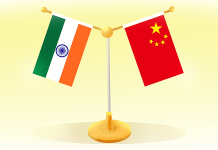
In a significant development for India’s long-standing pursuit of justice in the 2008 Mumbai terror attacks, Tahawwur Rana, a Canadian businessman of Pakistani origin, is finally en route to India. The extradition marks a crucial milestone in the country’s fight against terrorism and represents a major diplomatic and legal victory.
In This Article:
Who is Tahawwur Rana?
Tahawwur Hussain Rana, 64, is a Canadian citizen with deep ties to Pakistan and the now-banned terrorist organization Lashkar-e-Taiba (LeT). A former military doctor in Pakistan, Rana moved to North America, where he operated an immigration services business. It was through this business that he allegedly helped his childhood friend, David Coleman Headley (born Daood Gilani), obtain false documents that enabled Headley’s trips to India for terror reconnaissance activities.
Rana was arrested in the United States in 2009 and convicted in 2011 for supporting LeT and for his role in plotting a failed terrorist attack against a Danish newspaper. However, he was not convicted for the Mumbai attacks due to insufficient evidence at the time. India, however, has maintained that his involvement was instrumental in enabling Headley to carry out detailed surveillance of locations attacked during 26/11.
Background of the 26/11 Mumbai Attacks
The 2008 Mumbai terror attacks were among the deadliest in India’s history, leaving over 174 people dead and hundreds injured. Ten LeT-trained gunmen arrived via sea route from Pakistan and targeted multiple high-profile locations including the Taj Mahal Palace Hotel, Chhatrapati Shivaji Maharaj Terminus, and the Jewish center Nariman House.
David Headley played a key role in these attacks by scouting locations and sharing videos and floor plans with his handlers in Pakistan. Headley later entered into a plea bargain with the U.S. government and testified that Tahawwur Rana was aware of his association with LeT and had supported his travel and cover story.
The Long Road to Extradition
India formally requested Rana’s extradition in 2020. Over the past few years, Rana’s legal team has filed multiple appeals in U.S. courts to block his transfer. Most recently, the U.S. Supreme Court denied his emergency plea, clearing the way for his extradition.
This move comes after months of coordinated legal and diplomatic efforts by Indian authorities. Senior intelligence and investigative officers are accompanying Rana on his flight to India, which is expected to land on Thursday morning.
What Happens Next?
Upon arrival in India, Tahawwur Rana will be taken into National Investigation Agency (NIA) custody for interrogation. The NIA, which has been spearheading the probe into the 26/11 attacks, will likely confront Rana with fresh evidence, including Headley’s statements and new digital trails.
High-security arrangements have been made in both Delhi and Mumbai jails in case Rana is remanded to judicial custody. Officials stress that his questioning could unearth further insights into the planning and support network of the 2008 attacks.
Implications of the Extradition
This extradition is being hailed as a landmark achievement. It reaffirms India’s diplomatic leverage and the strength of its counter-terror cooperation with the United States. The case also sets a precedent for holding international conspirators accountable, regardless of time passed or legal complications.
The political message is clear: India will not rest until every individual involved in 26/11 is brought to justice. With Hafiz Saeed already behind bars in Pakistan on unrelated charges, and Zaki-ur-Rehman Lakhvi under scrutiny, Rana’s interrogation may lead to more global accountability.
The return of Tahawwur Rana to Indian soil is more than just a legal process—it’s a turning point in India’s battle against terrorism. His extradition brings renewed hope for justice, not just for the victims of the 26/11 attacks, but for the global community committed to eradicating state-sponsored terror. As the NIA begins its probe, the country watches with bated breath, hoping that long-delayed justice may finally be within reach.
By – Jyothi
Also Read – Trump Hits China with 125% Tariff, Pauses Tariffs for Other Nations: What It Means for Global Trade



